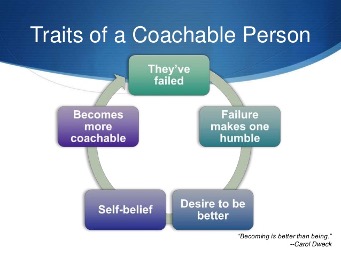
Commerce faculties offer an impressive array of courses for students seeking to enter the world of business. Few of them, however, offer degrees in sales, making for a shortage of graduates with a solid background in the sales field. This is surprising given that sales is such a vital part in most companies and, in many respects, forms the backbone of most economies. Sales positions, therefore, may be the most important, as well as the most difficult, positions for many companies to fill. So as a Sales Manager, what should you look for when hiring a sales person? Here are our top 6 things we as a Sales Management company typically look for when hiring a sales person.
1. Coachability
Some sales reps are naturals, but they are few and far between. Most reps require extensive coaching to become a true sales professional with an intimate understanding of the finer points of the art and science of selling. The time to determine a rep’s coachability is in the interview. How do you assess coachability during the interview? Start by asking candidates to:
- Provide an example of feedback they have received and what they did with that advice.
- Outline their personal goals and see if “continued improvement” is mentioned.
- Describe a challenge they took on and what they learned from the experience.
A candidate’s responses will help you determine if they are likely to apply the feedback they receive from coaching and whether they are open to new ways of doing things.

2. Tech and data driven
In our digital world, the use of technology and the leveraging of sales data/analytics to improve sales is an absolute necessity. Tech and data-driven people don’t just make decisions based on their instinct; they are principled in their thinking and go beyond merely observing data to proactively using it to make informed recommendations and decisions. To help determine whether a candidate is tech and data driven, we advise Sales Managers to have candidates outline their relationship with technology and set up a line of questioning where they need to explain why they make the decisions that they do. Can they leverage data to tell a story?

3. Curiosity

Curious people see the world differently and know what it means to observe something, experience it for the sake of learning and do something valuable in the future with the insights gained.
How to interview for curiosity? Curiosity and passion are closely linked. Have the candidate tell you what they are passionate about. Curious people will be confident in their knowledge on a certain topic and will likely have tried to modify a process or method to make something better. You might also ask about work situations where they had to complete a project, but were not given all of the details. How much, or how little context they provide will be a good curiosity indicator.
4. Engaging personality
An engaging person has a genuine interest in and empathy for the people with whom they interact, which is why having an engaging personality is a fundamental characteristic of a good sales person. In an interview, are they able to pique your curiosity and engage you in further discussion? An engaging person knows how to ask questions that make the other person feel that their perspectives are valued.

5. Competitiveness

Sales is all about beating the competition in one way or another, so assessing a candidate’s competitiveness is crucial. One way to do this is to ask the candidate questions about your company. A competitive candidate will have the answers, demonstrating that they prepared for the competition of getting the job by blowing away competitors with knowledge of the company’s history, founding principles and business philosophy. Unlike a candidate’s curiosity or engaging personality, his or her competitiveness is also something that you can explicitly ask about. A competitive person should be more than happy to present examples of where and how they competed—both against others and themselves.
6. Good listener

The better your sales reps are at listening, the better their sales conversations and sales results will be. Does the candidate demonstrate that they are listening—and not just to the words? Do they ask questions that set themselves up as attentive listeners? Later in the interview, do they bring up nuances from points that arose earlier in the interview, demonstrating that they were listening with rapt attention? Candidates who ramble on, often at high speed, tend not to be naturally good listeners.
Focus is here to help
Considering outsourcing your Sales Management? Need help developing your Sales Manager skills? We can add depth to your sales organization and can help guide you through the process of hiring new, high caliber salespeople.
Contact us today and we’ll show you how we can help fortify your sales ranks.

